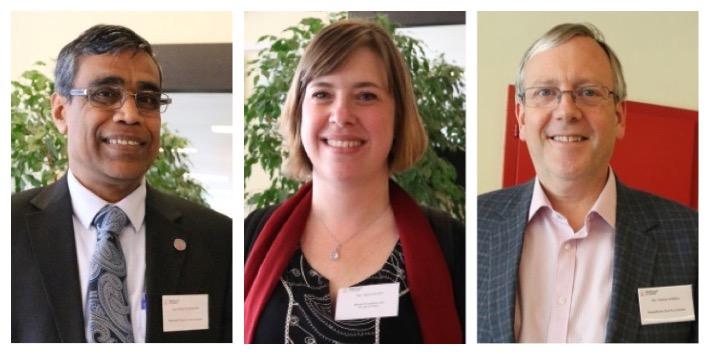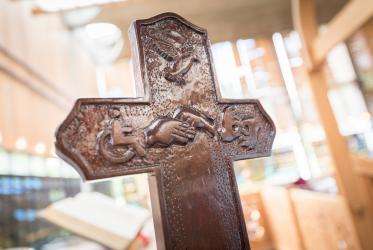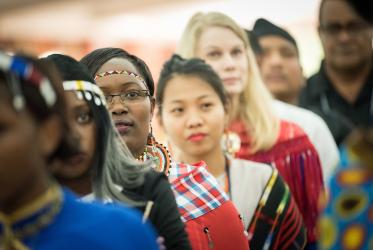An emphasis on establishing societies that offer opportunities for fulfillment and development to all was endorsed by participants in a meeting at Bogota, Colombia. Such societies, they said, would especially benefit people with disabilities in Latin America, a region where prevalence of disability is high, as reported by the Economic Commission for Latin America.
The meeting, which focused on “rights and socio-ecclesial participation of persons with disability” in Latin America, featured experiences, opportunities and challenges in making societies and churches accessible and inclusive spaces for persons with disability.
The meeting, held from 1 to 4 September at the Teusaquillo Mennonite Church, brought together some fifty theologians, pastors, educators, therapists, parents, Christians from a variety of backgrounds and persons with disability from Argentina, Costa Rica, Ecuador, Cuba, Peru, Uruguay and Colombia.
The meeting was organized by the Ecumenical Disability Advocates Network (EDAN), a project of the World Council of Churches, with support from the Mennonite Church of Colombia, Church World Service, the United Church of Canada, the Arigatou International and World Vision.
The meeting highlighted how broad sectors of the Latin American population live in unjust situations of exclusion and poverty, and among them are persons with disability who lack access to health, education and opportunities for personal fulfillment.
Statistics in the World Health Organization and World Bank Report on Disability (2011) indicate that close to a billion persons, roughly 15% of the global population, live with some type of disability. Given the conditions of inequality that exist in the world, and particularly in Latin America, this percentage would continue to increase in the coming years.
Rev. Noel Fernández, EDAN’s coordinator in Latin America, said that in given situations the church and society should not be indifferent to the concerns of people with disability. This became a call of this meeting supported by churches and ecumenical organizations.
Rolando Verdecia, EDAN’s coordinator for the Caribbean and Columbia, specified that four themes were discussed throughout the event including liturgy, sexuality, childhood and youth from the perspective of persons with disability. He said these themes are integral in achieving sensitization, exchange of experiences and joint commitments.
The outcomes of discussions stated that assuming and expressing an inclusive attitude towards persons with disability remains both a challenge and a pending task. They stressed that efforts towards an accessible, inclusive and equitable society for all persons of all ages is an ethical and theological imperative.
The meeting concluded with a liturgical celebration at the Mennonite Church in Berna City, Bogota, in which Rev. Gloria Ulloa Alvarado, the WCC’s president for Latin America and the Caribbean, affirmed growing concern about disability and inclusion of persons with disability among churches, other Christian institutions and in theological training.







